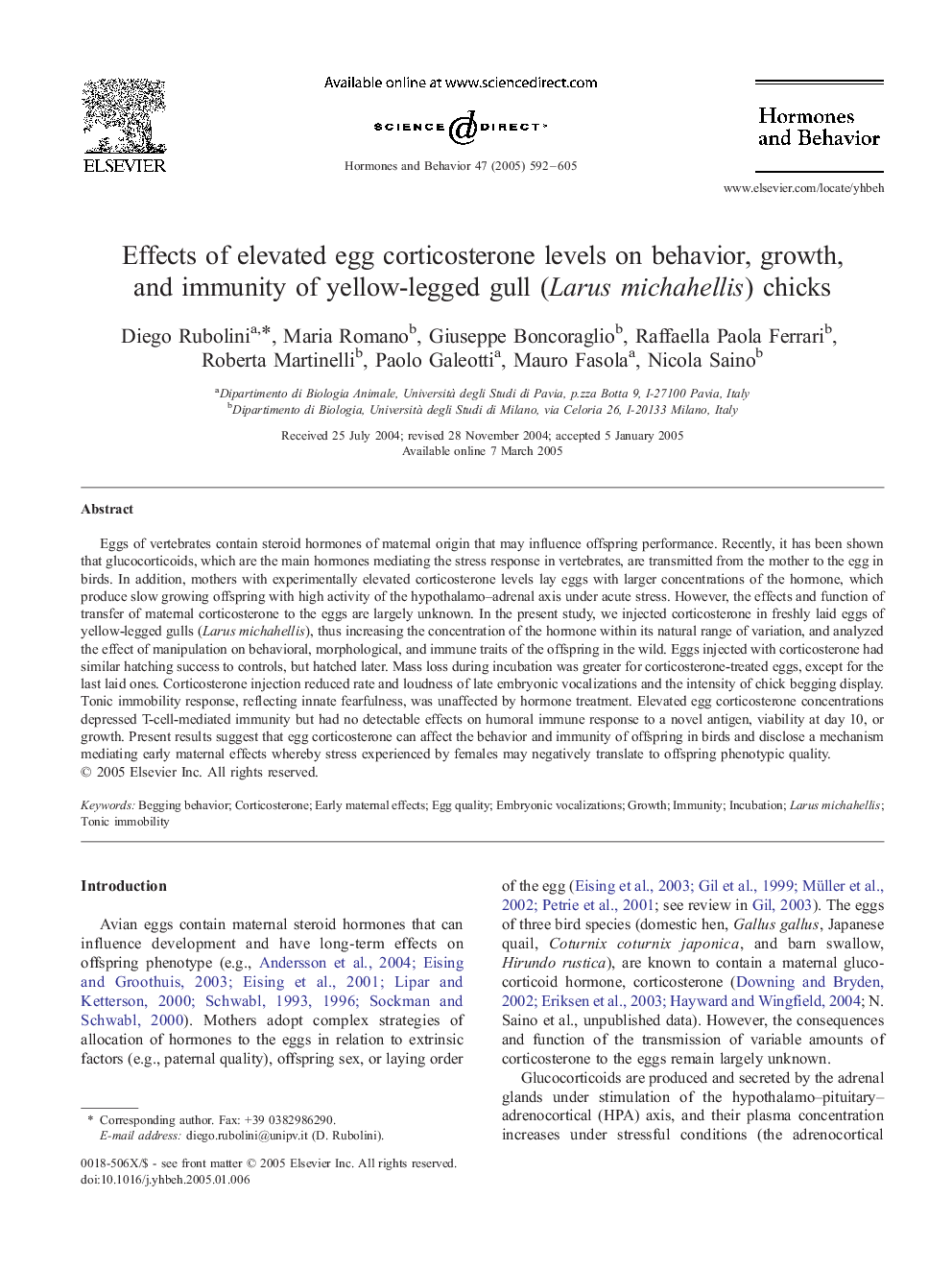| Article ID | Journal | Published Year | Pages | File Type |
|---|---|---|---|---|
| 10301411 | Hormones and Behavior | 2005 | 14 Pages |
Abstract
Eggs of vertebrates contain steroid hormones of maternal origin that may influence offspring performance. Recently, it has been shown that glucocorticoids, which are the main hormones mediating the stress response in vertebrates, are transmitted from the mother to the egg in birds. In addition, mothers with experimentally elevated corticosterone levels lay eggs with larger concentrations of the hormone, which produce slow growing offspring with high activity of the hypothalamo-adrenal axis under acute stress. However, the effects and function of transfer of maternal corticosterone to the eggs are largely unknown. In the present study, we injected corticosterone in freshly laid eggs of yellow-legged gulls (Larus michahellis), thus increasing the concentration of the hormone within its natural range of variation, and analyzed the effect of manipulation on behavioral, morphological, and immune traits of the offspring in the wild. Eggs injected with corticosterone had similar hatching success to controls, but hatched later. Mass loss during incubation was greater for corticosterone-treated eggs, except for the last laid ones. Corticosterone injection reduced rate and loudness of late embryonic vocalizations and the intensity of chick begging display. Tonic immobility response, reflecting innate fearfulness, was unaffected by hormone treatment. Elevated egg corticosterone concentrations depressed T-cell-mediated immunity but had no detectable effects on humoral immune response to a novel antigen, viability at day 10, or growth. Present results suggest that egg corticosterone can affect the behavior and immunity of offspring in birds and disclose a mechanism mediating early maternal effects whereby stress experienced by females may negatively translate to offspring phenotypic quality.
Keywords
Related Topics
Life Sciences
Biochemistry, Genetics and Molecular Biology
Endocrinology
Authors
Diego Rubolini, Maria Romano, Giuseppe Boncoraglio, Raffaella Paola Ferrari, Roberta Martinelli, Paolo Galeotti, Mauro Fasola, Nicola Saino,
